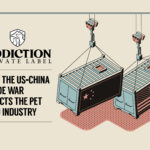For a time, Chinese products were not popular at all as they were seen as inferior products compared to their imported counterparts by the local market. This has changed. Consumers are now noticing that Chinese products are becoming on a par with imported ones.
Once upon a time in China
More than a decade ago, the words “Made in China” were frowned upon. It connoted cheaply produced products whose quality questioned time and again. Add to this some major incidents that involved Chinese products or ingredients in 2007 where Chinese exports were recalled for product safety concerns, including pet food. In 2008, another incident happened where recalls of heparin were announced by US FDA due to raw heparin stock imported from China.
China has come a long way from those dark days, especially when Chinese Premier Li Kequiang and his cabinet came up with “Made in China 2025”. It aims to have China produce higher value products and services to change the perception of the world that it only produces cheap, low quality products and services because of low labor costs.
Retailers going for private label
Leading the pack of retailers going for private label are convenience stores like 7-Eleven, LAWSON, and FamilyMart. They have come up with their own private label fresh meals, from snacks to lunch and sandwiches. Grocery retailers like Vanguard, Walmart, Lianhua, and others have already developed their own private labels. In Shanghai alone, there’s a proliferation of private labels in convenience stores, accounting for 40% of their products[1].
Obviously, there’s a big opportunity here. Recently, Alibaba has joined the bandwagon with its own Taobao Xinxuan.
The changing times
Buying habits of the Chinese market have changed with time. Brand loyalty that was enjoyed by big name brands is now waning. Many consumers purchase products wisely, especially the younger generation of consumers, millennials in particular. They are now demanding more from private labels.
“Prices are no longer the most important factor in private label products,” said Cao Jian, president of the Private Label Specialty Committee of Shanghai Licensing Association. “People now seek differentiated products with more added value. We think it represented a new stage for the growth of private label in China.”[2]
With this turn of events, it’s no wonder why private label products have shed their low-quality image in China.
Private label pet food
Because the young generation has a lot to do with the renaissance of private labels, their buying behavior has impacted their lifestyles as pet owners too. In a 2018 survey conducted by Goumin, China’s No. 1 pet platform, it revealed more than 75% of pet owners are born after the 80s. “These [are] high-income people, very optimistic about consumption, have become the main drivers of the economy.”[3]
This young and rich generation also take pet parenting seriously, sometimes to an extreme as to mirror their lifestyle. Their quest to give their pets the best food available has made Chinese pet food manufacturers develop their own formulations to match the expectations of these consumers.
China is a growing market indeed for private labels. If you need a partner to get into the Chinese market via private label, Addiction Foods Private Label can help you. We might just be the right partner for you.
For further reading:
1. https://www.forbes.com/sites/wadeshepard/2016/05/23/why-chinas-manufacturers-started-building-their-own-brands/#7fe9b7a031b5
2. https://asia.nikkei.com/Business/Business-trends/Private-label-products-shed-low-quality-image-in-China
—————————————–
Footnotes:
[1] http://www.china.org.cn/business/2018-11/22/content_74197812.htm
[2] ibid.
[3] https://www.appetizerblog.com/pet-food-trends-chinese-style/







